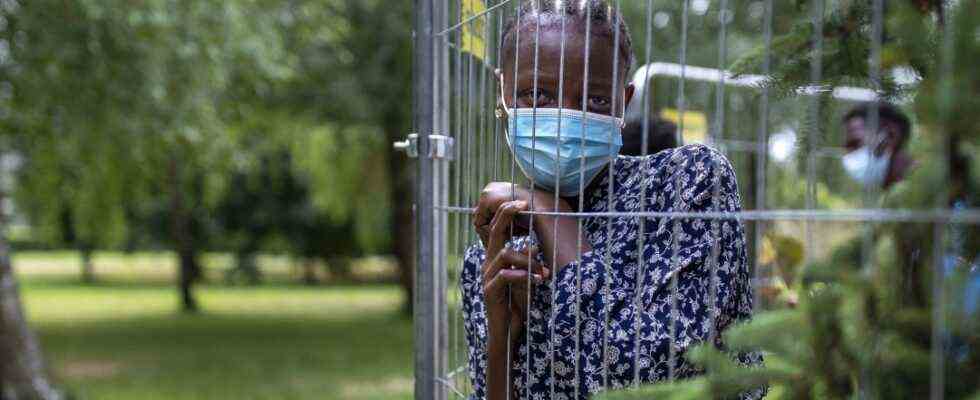With increasing urgency, Lithuania laments that its neighbor Belarus is targeting and illegally smuggling migrants across the border in order to punish the Baltic state for the EU sanctions against Minsk. In the entire past year 2020, Lithuanian border guards picked up 81 people, from the beginning of this year to this Wednesday there are almost 1,800, in July alone 1100 so far. On Thursday there were 107. The Lithuanian government declared an emergency, and because Foreign Minister Gabrielus Landsbergis Can’t expect any help from the Belarusian ruler Alexander Lukashenko, he flew straight to Iraq.
This is where most of the migrants arrested in Lithuania come from. Landsbergis was not successful in Baghdad. His mood was very subdued when he said on his return that the Iraqi government was “very careful about the return of its citizens”. The greatest help Baghdad offers would be to help identify the refugees.
Landsbergis accuses the Belarusian leadership of using Iraqis “to put pressure on my country and the European Union”. There are flights from Baghdad to Minsk several times a week. “We have the impression that Iraqis are promised an easy trip to Europe and then they end up in a forest,” the foreign minister told his Iraqi colleague after a report by Radio Free Europe / Radio Liberty. “They are lied to by smugglers and spend a lot of money.”
Lithuanian Prime Minister Ingrida Šimonytė said that Belarus was offering cheap flights to Minsk for migrants from Iraq through travel agencies. This would be proven by documents that were found on one of the refugees. Most of them, however, do not have any ID with them.
Migrants also fly in from Istanbul
In addition to Baghdad, Lithuania keeps the route from Istanbul to Minsk – there are several flights a day – for the second route through which migrants find their way to the EU – with approval from Belarus. Many of them come from the Middle East and Africa, such as the Congo, Cameroon, Mali and Gambia. The Belarusian ruler Lukashenko had made it clear that he was by no means thinking of closing the borders with Poland, the Baltic states of Latvia and Lithuania, and the Ukraine.
One of his greatest critics, the Belarusian opposition politician Pavel Latuschko, therefore considers the suspicion of the Lithuanian government that Minsk is organizing flights from Iraq and willingly allows refugees to enter the neighboring country as completely plausible. There has never been a natural movement of refugees through Belarus, Latuschko told the German Press Agency: “The regime organizes them artificially” because it wants to take revenge for the EU sanctions. And Lithuania is one of the states that are putting a lot of pressure on Minsk within the EU.
The government in Vilnius is now in favor of further sanctions against Belarus because of the migration conflict. But above all, the country wants to protect itself. The number of refugees is small compared to those in other EU countries, but for Lithuania it is large. The country has not even three million inhabitants and has hardly taken in any refugees itself. For Vilnius, the increased illegal migration across the Belarusian border means something completely new. Lithuania is the EU’s external border; around 60 percent of the 680-kilometer-long border with Belarus is so far unprotected. The country is now arming itself and has started building a 550-kilometer fence; it is supposed to be a mixture of a physical barrier and electronic surveillance.
Lithuania has already asked Greece about its experience in protecting the EU’s external border, and according to Interior Minister Agnė Bilotaitė, Germany is sending ten police officers to intensify surveillance, which the Federal Ministry of the Interior confirmed on Friday. The mission begins on July 30th. The EU border protection agency Frontex is already helping with patrols and interviewing refugees.
In addition, the Lithuanian parliament has tightened the laws. Rejected asylum seekers only have limited rights to appeal. After their arrest, they may not be released until six months later – all of this is intended to deter. In any case, Lithuanian aid and human rights organizations are shocked by this. You see in this a breach of international statutes.

